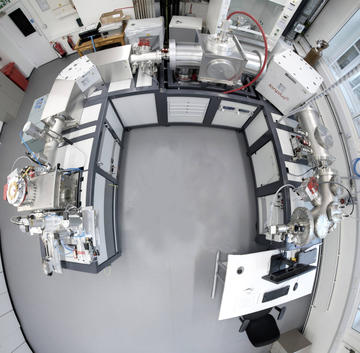We are delighted to announce that the National Environmental Isotope Facility (NEIF), of which our radiocarbon lab is a part, is one of seven NERC facilities to receive an investment of £70 million from the Natural Environmental Research Council (NERC) and the Arts and Humanities Research Council (AHRC) to provide scientific support until March 2031.

The Oxford Radiocarbon Accelerator Unit (ORAU), part of the School of Archaeology, provides a radiocarbon dating service for researchers working in a wide range of disciplines. Alongside the NEIF radiocarbon facility based in SUERC, it will provide radiocarbon dating research services to the academic community working on archaeological and environmental projects across the broad range of the NERC and AHRC's remit, providing support from project development, to analysis and data interpretation. In addition, this funding allows the continuation of teaching the next generation of scientists via the annual radiocarbon and chronological modelling workshops, hands-on training in the radiocarbon lab, and the recently launched online GAEA learning platform (https://www.gaea.ac.uk/).
The ORAU will work alongside facilities at the Scottish Universities Environmental Research Centre, the University of Bristol and the British Geological Survey to provide a suite of molecular and isotope capabilities able to deepen our understanding of present and past people and environments.
The ORAU was one of the first radiocarbon accelerator facilities in the world, and has remained a world-leading laboratory since its inception. It has developed several innovative methods that have led to more reliable dating of archaeological samples, as well as the software required to calibrate and statistically analyse dates from archaeological and environmental sites. The award of the NEIF contract provides core funding for this work to continue.
Director of Research Laboratory for Archaeology & the History of Art, Dr Rachel Wood said: 'this funding will enable us to continue to support researchers from across the UK access and interpret the radiocarbon dates that can be critical to generating exciting new understandings of our past and the environment around us. We are delighted to be able to continue training the next generation of archaeologists in the detail of radiocarbon, and look forward to seeing their skills being developed and used’.
The next round of applications for NEIF funding closes on 3rd April. Please get in touch with the facility if you are interested in submitting an application (https://www.isotopesuk.org/apply.html).